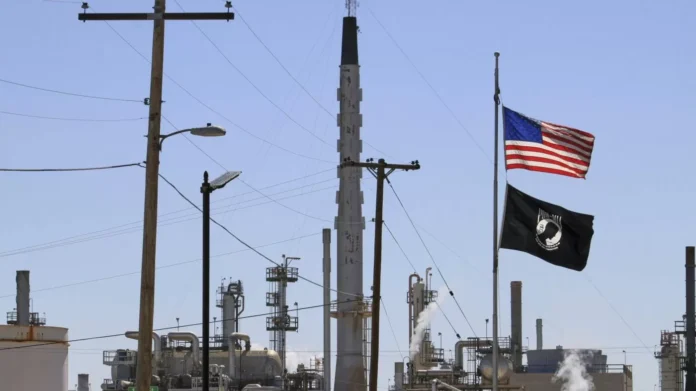Air pollution is a major issue that affects the health and well-being of people all over the world. In the United States, the oil and gas industry has been identified as a significant contributor to this problem. A new study has found that the emissions from these operations are causing 91,000 premature deaths and hundreds of thousands of health issues each year. What’s even more concerning is that racial and ethnic minority populations are bearing the biggest burden of this environmental injustice.
The study, conducted by researchers from the University of Washington, looked at the impact of outdoor air pollutants from oil and gas operations on human health. The findings were alarming, to say the least. The pollutants, which include fine particulate matter (PM 2.5), nitrogen dioxide (NO2), and ozone, are known to have detrimental effects on the respiratory and cardiovascular systems. Exposure to these pollutants can lead to a range of health issues, from asthma and lung cancer to heart attacks and strokes.
The study found that these pollutants are responsible for 91,000 premature deaths each year in the United States. This is a staggering number that cannot be ignored. What’s even more concerning is that the burden of these premature deaths falls disproportionately on racial and ethnic minority populations. The study found that these communities are exposed to higher levels of air pollution from oil and gas operations, leading to a higher risk of health issues and premature deaths.
This environmental injustice is a result of systemic inequalities and discrimination that have plagued these communities for decades. The oil and gas industry has historically been located in low-income and minority neighborhoods, leading to a higher concentration of air pollution in these areas. This, coupled with inadequate regulations and enforcement, has created a toxic environment for these communities.
The study’s findings highlight the urgent need for action to address this issue. The health and well-being of our communities, especially those who are most vulnerable, must be a top priority. It is time for the government and the oil and gas industry to take responsibility and implement stricter regulations to reduce emissions and protect public health.
Fortunately, there are steps that can be taken to address this problem. The first and most crucial step is to reduce emissions from oil and gas operations. This can be achieved through the use of cleaner technologies and practices, such as capturing and storing methane emissions. The government must also enforce stricter regulations and penalties for non-compliance to ensure that these operations are not causing harm to the environment and public health.
In addition, there needs to be a focus on environmental justice and equity in policymaking. This means involving and listening to the communities most affected by air pollution and ensuring that their voices are heard. It also means addressing the underlying systemic issues that have led to this environmental injustice in the first place.
The study’s findings also serve as a reminder of the urgent need to transition to cleaner and renewable energy sources. The continued reliance on fossil fuels is not only harmful to the environment but also to public health. It is time for the government and the oil and gas industry to invest in and prioritize renewable energy sources to reduce our dependence on fossil fuels.
In conclusion, the new study’s findings are a wake-up call for all of us. The air pollutants from U.S. oil and gas operations are causing 91,000 premature deaths and hundreds of thousands of health issues each year, with racial and ethnic minority populations bearing the biggest burden. It is time for action to address this environmental injustice and protect the health and well-being of our communities. Let us work together to create a cleaner, healthier, and more equitable future for all.

